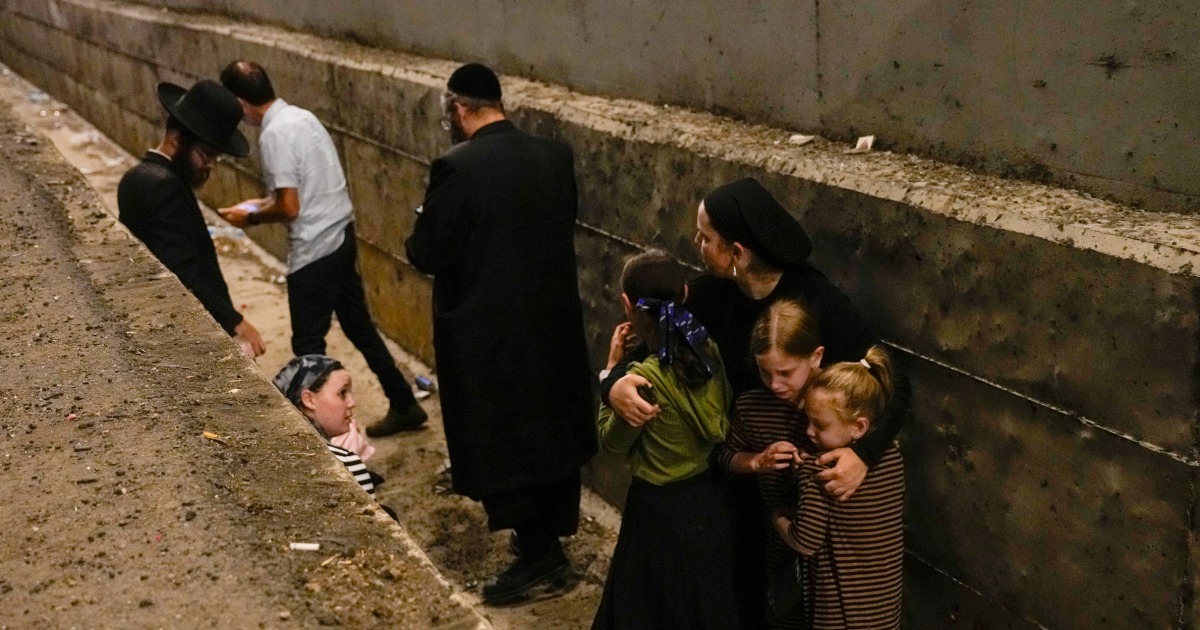The Biden administration’s monthslong effort to avert a full-blown war between Israel and Iran is now being put to the most difficult test yet after Tehran on Tuesday launched a barrage of ballistic missiles at Israel.
The administration has worked around the clock for the past year trying to avoid a direct clash between its ally Israel and Iran. But now, administration officials are facing a potential worst-case scenario, as the latest attack by Iran will inevitably trigger a retaliation by the Israeli military. Such a chain reaction could possibly pull in the United States, as it helps to defend Israel, and other countries in the region.
The last time Iran fired missiles and drones at Israel — six months ago, in a retaliatory attack after Israel bombed a diplomatic compound in Syria — only a handful of the 300 projectiles struck Israel, and Washington managed to persuade Israel to hold back from a major retaliation.
This time, regardless of whether the Iranian attack is effective, Israel will be eager to strike back, former U.S. and Israeli officials said.
“It will be difficult for Israel to respond in such a minor way as it did after the April 13 event,” the former Israeli official said.
Last week, as the U.S. unsuccessfully scrambled to secure a cease-fire agreement between Israel and the Iranian-armed Hezbollah militia in Lebanon, Secretary of State Antony Blinken warned that the risk of escalation in the region was acute and that diplomacy was the only way forward.
Blinken said that “the best answer is diplomacy” and that a coordinated international effort was vital “to avoid a full blown war.” But since then, Israel has pressed its advantage in Lebanon, wiping out most of Hezbollah’s leadership, striking at weapons depots and sending in ground troops to try to push back militant positions that threaten northern Israel.
The Biden administration has had to face the harsh reality that the prospects of a cease-fire between Israel and Hamas in Gaza — a goal that U.S. officials worked tirelessly to achieve — and a cease-fire between Israel and Hezbollah in Lebanon now look unrealistic if not impossible as events have overtaken earlier calculations.
More than 40,000 people have been killed in the Israeli military campaign in Gaza, according to the territory’s health ministry, and at least 97 people kidnapped by Hamas on Oct. 7 are still in Gaza, although a third of them are believed to be dead.
Given Israel’s air and ground assault on Hezbollah, the administration has lowered its expectations and is now focused on one objective: avoiding a war with Iran, two former officials said.
Apart from diplomacy, President Joe Biden has bolstered the U.S. military’s presence in the region to try to deter Iran and protect Israel. The U.S. forces include fighter jets, bombers and U.S. Navy destroyers equipped with Aegis defense systems that are able to shoot down ballistic missiles. On Monday, the Pentagon said it was sending a “few thousand” additional troops to bolster the roughly 40,000 American forces in the area.
Defense Secretary Lloyd Austin spoke with his Israeli counterpart earlier Tuesday to discuss Iran’s preparations for an attack on Israel, officials said.
It remains unclear if America’s Arab allies in the region will assist with defending Israel from aerial attack or allow flights over their territory to enable U.S. aircraft to shoot down projectiles. Those governments must contend with domestic public opinion that strongly opposes lending any assistance to Israel.

Leave a Reply